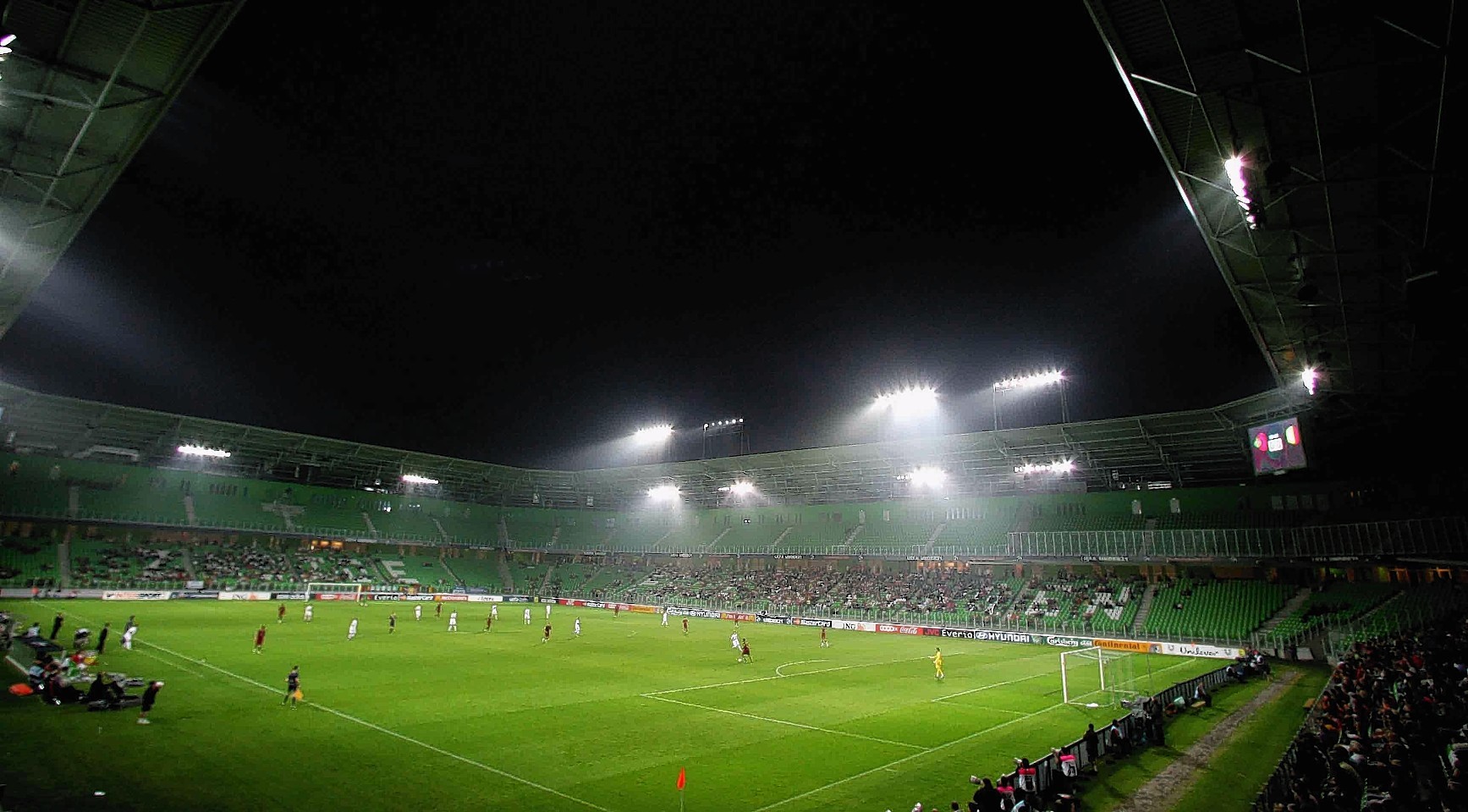Aberdeen’s search for a new home is no nearer a conclusion, but Europa League opponents Groningen have had no such worries in finding their new stadium.
The Dons proposed move to Loirston on the outskirts of the city has been in development purgatory for a couple of years now.
Their Dutch counterparts, who host the Dons tomorrow night in the Europa League after the sides drew 0-0 at Pittodrie on Thursday night, have found a fantastic solution to their problems.
With the help of the council in Groningen and private developers FC Groningen will host the Dons in their stunning Euroborg Stadium.
Opened in 2006 by Dutch international footballer Arjen Robben, who began his career with Groningen before moving to PSV, Chelsea, Real Madrid and then Baynern Munich, the stadium is open for business 365 days a year.
But football is only one of its functions with parking for 1,000 cars supporting a supermarket, 180 apartments, training college, a 10-screen cinema, casino, offices and restaurant, all located on site.
With a new mainline train station, 470 homes and a road system build to accommodate the stadium and the surrounding Europapark development, the result has been sold-out signs going up at the stadium for every home game.
Demand has outstripped demand to the extent the stadium has already increased to 22,250 and the club wants to expand the stadium further to 30,000.
By 2006 it was clear Groningen’s time at Oosterpark Stadium was near an end. Holding just 12,500 supporters, the stadium was no longer fit for purpose and it was time for an upgrade.
Relocating was easier said that done. While the directors knew the Oosterpark stadium was outdated and unsafe and there was a need for the club to increase match day revenue, expansion was impossible and the club had no money for a new development.
Step forward former deputy mayor Willem Smink, who was responsible for housing and planning in the city, which, with a population of 180,000, is the largest in the north of Holland, and he played a key role.
He believed the football club’s problems with their old home could be solved by moving to a new home which in turn would bring huge benefits to the city.
Smink said: “The football club wanted to renovate the stadium, and to increase attendance and revenues so that it could compete with the big teams.
“The club looked around but had no space to develop.
“At the same time, the city was thinking of developing a new district to the south-east of the city.
“We took the view that building a new stadium on its own would provide very little for the city. Putting such a stadium, however, within a bigger vision means we can do more with it.”
With the help of private developers the football club was offered the chance to have a stadium which was integrated within a new urban development.
What followed is a development of stunning proportions and today the Euroborg Stadium is the jewel in the crown of the Europapark development.
Construction of the stadium, which cost £36million, was completed on behalf of the club by several interested parties by 2008. Groningen don’t own their stadium. The council owns 50% with the other half owned by a consortium of three private developers, Ballast Nedam, Royal BAM Group and VolkerWessels.
But the Euroborg is Groningen’s home and Hans Nijland, general manager at the club, knows the Green Cathedral, as it has been named by the supporters, has helped transform the club’s fortunes.
The only drawback is they are finding it difficult to increase capacity further.
Nijland said: “We were a hard team to beat at Oosterpark but now we are even harder to beat.
“This is due to the fact that spectators are seated very close to the pitch, without a moat. The atmosphere this creates helps our team to play at its best.
“Compared with Oosterpark, our stadium revenues have increased by more than 50%.
“To any other club considering a move like this I recommend that the team rents the stadium and avoids trying to be the owner of such a building.
“But most importantly, make sure that expansion plans are included from the outset.”
There is so much more to the Euroborg Stadium than the 22,250 seats which house the supporters at Groningen’s home matches:
1 – The Alpha College
The regional training centre for North and East Netherlands provides secondary vocational and educational pathways in Groningen, Hoogeveen, Hardenberg, Assen and Leek. It also provides corporate training. The college employs 1,000 people and has 12,000 students attending.
2 – Fair Play Casino
From roulette to slots with bingo and poker machines thrown in for good measure. The casino is open before and after home games and is a popular meeting point for supporters.
3 – FlexOffiZ
Most of the office space at the stadium has been taken up by the football club but there are spaces remaining for lease.
4 – Jumbo Supermarket
The largest supermarket of its kind in the Netherlands, it is open 365 days a year and includes a cooking studio workshop.
5 – Physiotherapy
The centre specialises in physical therapy and sports physiotherapy.
6 – Noorderpoort Euroborg Hospitality and Tourism
The school offers courses in bread and pastry making, catering, hotel management, tourism and beauty.
7 – Car Park
Boasting 900 spaces and located within the stadium it also offers additional parking for the two apartment buildings, Stoker and Brander. Each building has 90 apartments, 23 floors and two penthouses.
8 – Wok Euroborg
An all you can eat traditional Chinese buffet, pay your price and you can eat as much as you like for three hours.
9 – Wolff Cinema
With almost 1,900 seats spread over 10 halls, the cinema boasts a varied selection of movies.
